Menu

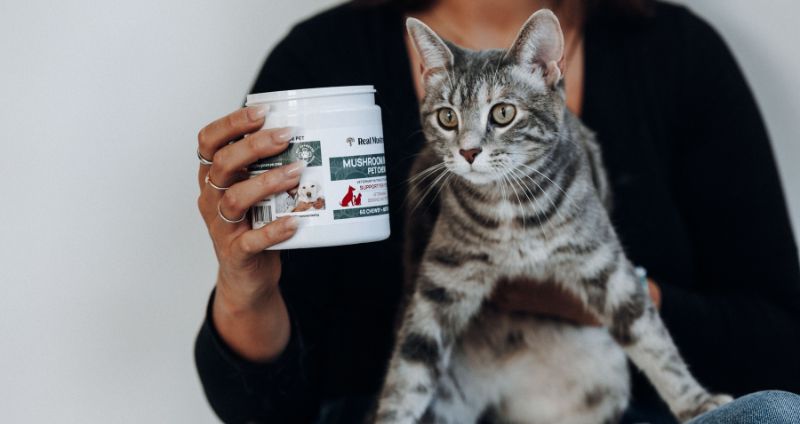
Cats eat a variety of things, despite being officially classified as carnivores. Some cats eat cucumber, carrots, and other vegetables, though this behavior is rare.
As the popularity of mushrooms as functional foods skyrockets in the world of holistic health, cat parents can't help but ask, "Can cats eat mushrooms?" While it’s important to differentiate poisonous mushrooms from edible ones, can felines actually eat mushrooms and enjoy health benefits from it?
As experts on the subject, we’ll guide you through the key benefits of feeding culinary and functional mushrooms to your furry companions. By the end of this article, you’ll know the answer to: 'Can cats eat mushrooms?'
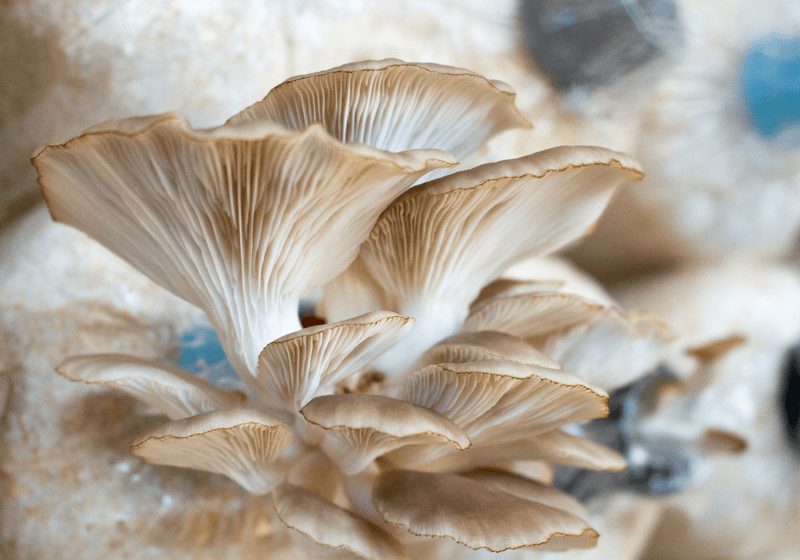
Can cats eat mushrooms? Sometimes, it’s a matter of health or preference.
If you’re unsure what healthy treat to give to your cat, mushrooms can be a viable alternative to commercial pet treats. Many mushroom species are safe for cats and also come in savory flavors they might enjoy when added to their meals.
Mushrooms are complex, highly adaptive organisms with properties that can support various bodily functions.
They're rich in immune-stimulating compounds that have been instrumental throughout evolution, allowing animals to fend off pathogens. When mushrooms are consumed, they trigger an "alert" in the immune system, primarily through bioactive compounds such as beta-glucans.
In other words, mushrooms can be likened to the first light of dawn that wakes up a nocturnal bird, preparing it for the day's activities. Consuming functional mushrooms such as turkey tail, reishi, lion's mane, and cordyceps sends a similar "rise and shine" command to your cat's body.
Instead of signaling an impending threat, a cat receives encouragement for alertness when they eat mushrooms. This strengthens your feline friend’s immune system.
Can cats eat mushrooms? Definitely the edible ones.
To determine which mushrooms are safe to your furry friend’s diet, it's crucial to understand the four mushroom categories:
While some mushrooms fall into multiple categories, this article focuses on culinary mushrooms and functional mushrooms.
It's important to steer clear of wild mushrooms because they can contain toxic, psychoactive, or poisonous properties. Instead, safe, culinary mushrooms can be an excellent addition to your cat's diet.
When well cooked, store-bought mushrooms can be safely added to your cat’s diet through a wide range of pet-friendly recipes. Whether you forage wild mushrooms or procure store-bought mushrooms, there’s the risk of them being difficult to digest due to their high fiber content.
Remember to always serve your furry friends cooked mushrooms using the right recipes.

Culinary mushrooms, like oyster, shiitake, and lion’s mane mushrooms, pack a nutritional punch. They're teeming with proteins, fiber, selenium, B vitamins, vitamins and polyunsaturated fatty acids.
Plus, mushrooms can be an abundant source of vitamin D2 when exposed to UVB light. They also house unique antioxidants that help with longevity, like ergothioneine and glutathione.
Culinary mushrooms are mostly safe for cats and provide a wide range of health benefits. To unlock these benefits for your cat, cooking them well is key.
All mushrooms contain chitin, a component that can hinder digestibility but also serves as dietary fiber.
Cooking mushrooms breaks down chitin, increasing the bioavailability of crucial immunomodulatory compounds like beta-glucans.
So, for the question, “Can cats eat mushrooms?” the answer is YES, with some qualifications. Here are some tips to help you prepare a safe mushroom treat safe for cats:
Chopping mushrooms into small pieces improves their digestibility and allows them to be cooked more effectively. This will release their many bioactive compounds, which can benefit your cat’s health.
Taste Preferences: Unlike other foods, mushrooms have a unique taste that goes beyond sweet or savory. They have an umami flavor that is meat-like with a touch of saltiness.
A common suggestion pet owners have when adding mushrooms to their cats’ diet is the preparation of mushroom soup. Although mushroom soup is relatively easy to prepare, it may not be the best treat for your furry friend.
Even if you don’t use wild mushrooms or cook your mushrooms well, mushroom soup is one dish your furry friend shouldn’t have. Most of the time.
Traditional mushroom soup recipes contain ingredients that are harmful to cats, such as:
Unless you’re making a new recipe without the ingredients above, it’s best to avoid feeding mushroom soup to cats, especially if you’re using a powdered soup packet. This is why using the right recipes containing cooked mushrooms that are safe for cats is key to helping them enjoy a more nutritious diet.
Some functional mushrooms can act as adaptogens when ingested. Adaptogens help the body adapt to physical and emotional stress over the long term, increasing attention, endurance, and overall body function.
Curious cat owners don’t have to feed raw mushrooms foraged from nature. Instead, they can order functional mushroom extracts derived into tincture or powder form.
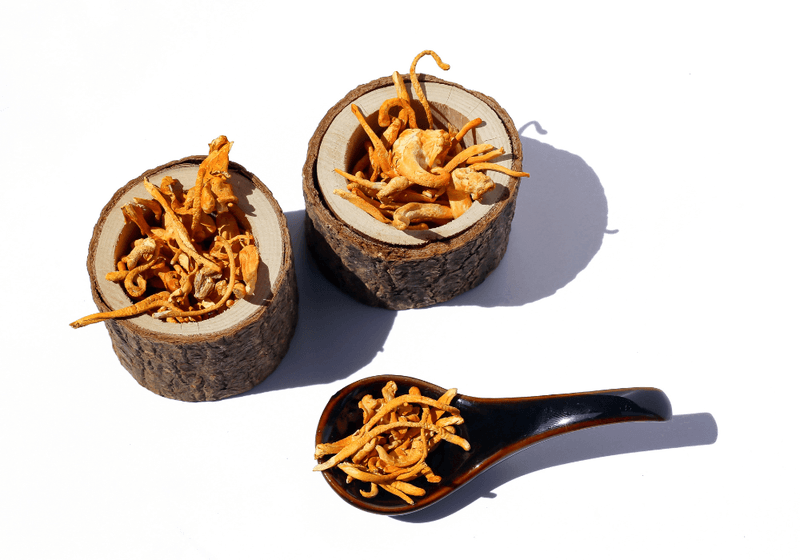
Cordyceps, a type of fungus, has remarkable benefits for cats. This fact shouldn’t be surprising, considering that it's closely related to some of the tastiest edible mushrooms, such as truffles and morels.
Its palatable taste makes it an appealing supplement for our feline friends who can be quite selective when it comes to food. However, the savory flavor of mushroom dishes isn’t the only practical benefit of feeding it to cats as an occasional treat.
Cordyceps checks the boxes when it comes to feline health. Whether your cat is young or old, this mushroom can offer considerable support.
Here are some of the many health benefits your cat may enjoy from eating cordyceps mushrooms:
An alarming number of cats are prone to develop kidney disease, a condition that can sometimes be fatal.
Studies in various species have shown that Cordyceps can effectively support kidney function and boost protection against toxins, including certain antibiotics and immunosuppressive drugs [1].
This mushroom isn't just beneficial for the kidneys; it also plays a crucial role in maintaining healthy glucose levels. Just like humans, cats can develop Type 2 Diabetes, often associated with a diet rich in carbohydrates.
Cordyceps helps maintain blood glucose levels thanks to its special polysaccharides. It also helps keep the body's insulin production steady, further supporting healthy blood sugar levels [2].
Cordyceps also has an impressive effect on the respiratory system, potentially benefiting cats with bronchial asthma. It aids in maintaining healthy pulmonary function, thus promoting proper respiration [3].
In addition to its lung-boosting properties, Cordyceps also offers heart health benefits [4].
Feeding Dosage: How many mushrooms should you feed your cat? Most cats would do well with an eighth of a teaspoon of pure mushroom extract powder mixed into their food once or twice daily.
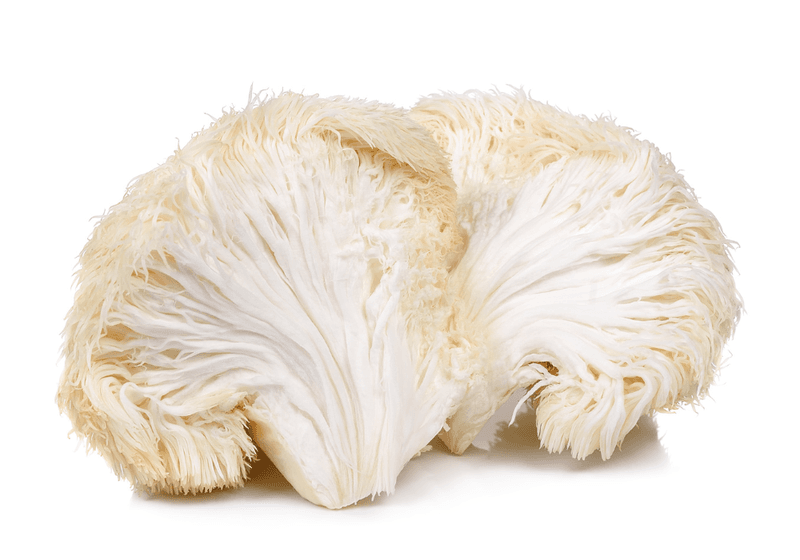
Lion’s mane, scientifically known as Hericium erinaceus, is a mushroom traditionally used in Eastern medicine for its multiple health benefits, particularly for cognitive function and gut health. With increasing interest in natural remedies for pet health, Lion’s mane has emerged as a key supplement of interest for cat owners and dog owners alike.
Here are some of the key health benefits of lion’s mane mushrooms for cats:
Similar to dogs, cats are susceptible to cognitive dysfunction as they age, a condition akin to Alzheimer's in humans. An estimated 36% of cats aged between 11 and 21 show signs of dementia [5].
Common symptoms of feline cognitive dysfunction include [5]:
Human clinical trials have shown that lion’s mane mushroom can support brain function and cognition in people with mild dementia and/or memory loss [6,7]. Studies on this unique functional mushroom have discovered that it supports cognition by stimulating neurogenesis, the process of forming new neurons [9, 10].
Even though rigorous clinical studies in cats have yet to be conducted, there's anecdotal evidence suggesting its positive impact.
For instance, testimonials from pet parents, as shared by Real Mushrooms’ Registered Veterinary Technician, Joni Kamlet, have reported improvements in older dogs exhibiting signs of dementia. This includes being more attentive, finding their way around familiar surroundings, and initiating play.
Given the physiological similarities between dogs and cats, it’s plausible to speculate that lion's mane could provide similar benefits to felines, potentially improving their cognitive function and mitigating signs of feline cognitive dysfunction.
Beyond cognitive benefits, lion’s mane could also offer cats support for their gut health, mood, and immune system. Traditionally used in China and Japan to support gut health, nervous system weakness, and even wound healing, this mushroom also has the potential to promote a healthy inflammatory response.
Furthermore, human clinical studies have suggested lion's mane's potential role in mitigating anxiety and depression. These mood-supporting benefits could potentially be translated to cats, helping to manage behavior issues and promoting overall well-being.
Moreover, lion's mane can help regulate the immune system. Considering that cats, like all pets, can suffer from various immune-related issues, lion’s mane could provide additional support in bolstering their immune health.
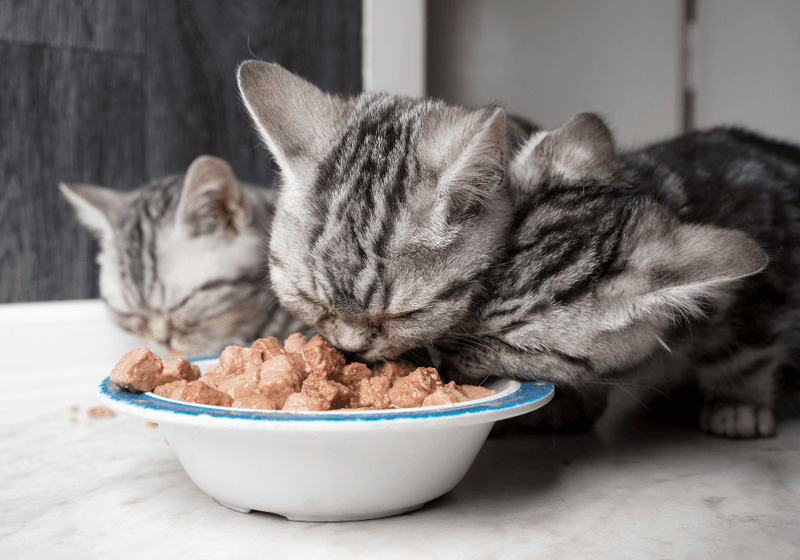
For pet parents considering introducing lion’s mane or cordyceps supplements to their cat's diet, it's advisable to use a concentrated mushroom powder extract. Real Mushrooms offers pet products that are pre-measured for animal dosing, making them easy to administer.
Cats are notoriously picky eaters, making the introduction of new supplements a bit of a challenge. Luckily, lion's mane and cordyceps extract powders are fairly bland tasting and can easily blend into your cat's favorite dishes without causing too much of a taste disturbance.
Remember that patience and persistence are key when introducing new supplements to your cat's diet. Here’s a good tip from Real Mushrooms’ Registered Veterinary Technician, Joni Kamlet, about introducing new supplements to picky or cautious kitties:
It's important to note that while lion’s mane and cordyceps appear to be safe for cats, more research is needed to fully understand its impact and optimal dosing for feline health. Always consult with your veterinarian before starting any new supplementation regimen.
Safety First: Double-check that the mushrooms you buy are safe for cats, either when cooked naturally or when in tincture or powder form. Contact your vet immediately after your feline friend shows adverse reactions after eating mushrooms.
When it comes to choosing a mushroom supplement for your cat, it's important to prioritize quality. Look for supplements that are organic and free from additives, pesticides, or fillers. Products that have been tested by third-party labs for purity and potency can also offer an additional layer of reassurance.
When looking to get the most value for your money, ensure you are buying a supplement that uses 100% mushrooms (fruiting bodies) and not mycelium grown on grain.
Our mushroom extract products are for both you and your feline friends, which is why we also have veterinary-formulated variants of our mushroom extract supplements. This ensures that our mushrooms are safe for consumption to prevent mushroom poisoning and other adverse reactions your pets may have.
Can cats eat mushrooms? Well, maybe it’s better to ask how you should feed mushrooms to your cats. Instead of feeding raw mushrooms, you can use pet-friendly mushroom supplements instead.
As we continue to explore the potential of functional mushrooms, it's encouraging to see the possibilities they offer for enhancing our pets' health and quality of life. Whether for cognitive support, gut health, revitalization, or general wellness, they could be a valuable addition to your feline friend's wellness regimen.
Disclaimer: The information or products mentioned in this article are provided as information resources only, and are not to be used or relied on to diagnose, treat, cure, or prevent any disease. This information does not create any patient-doctor relationship, and should not be used as a substitute for professional diagnosis and treatment. The information is intended for health care professionals only. The statements made in this article have not been evaluated by the Food and Drug Administration. Any products mentioned are not intended to diagnose, treat, cure, or prevent any disease. The information in this article is intended for educational purposes. The information is not intended to replace medical advice offered by licensed medical physicians. Please consult your doctor or health practitioner for any medical advice.
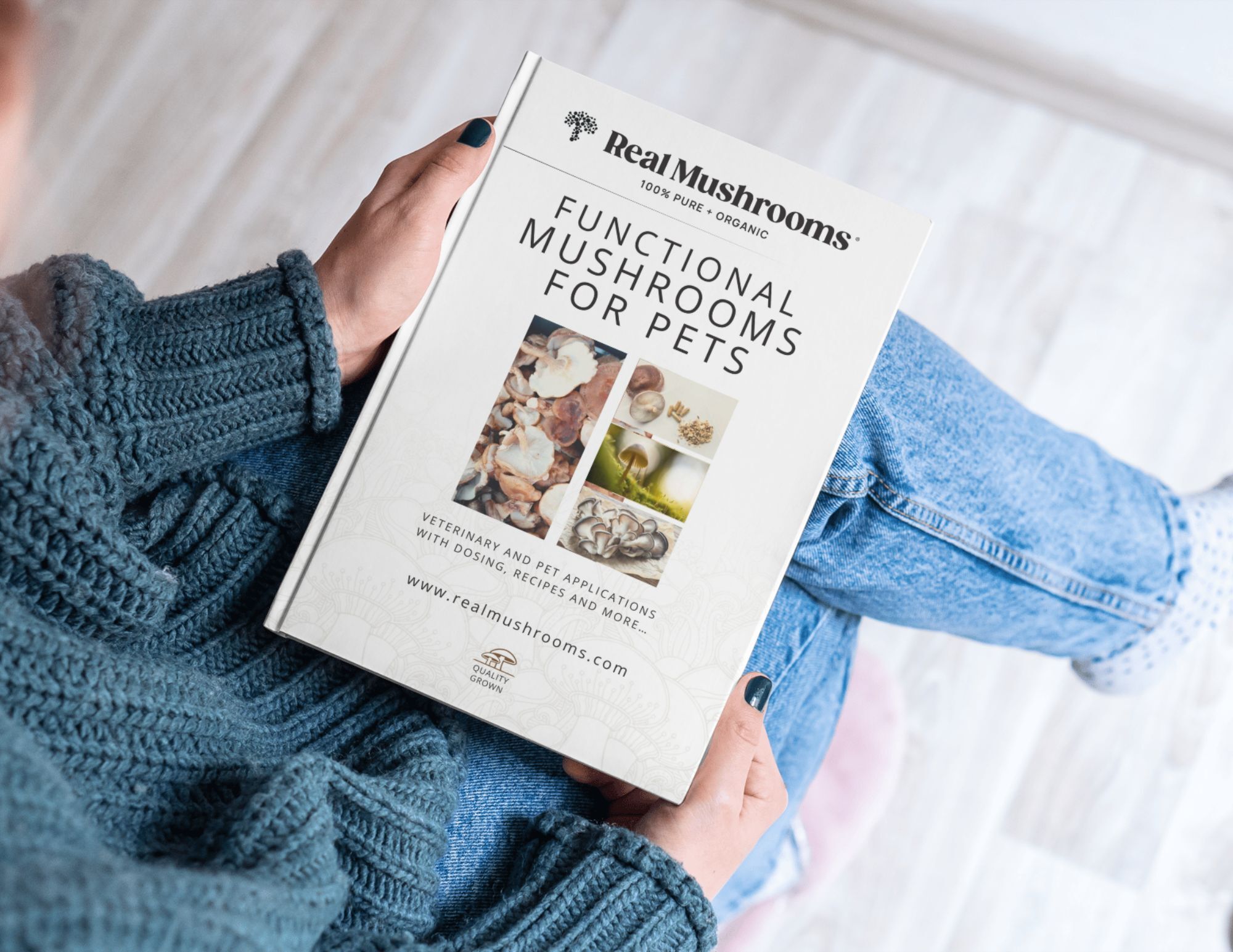
– Plus, Enjoy Exclusive Tips and Updates with Our Real Mushrooms for Pets Newsletter